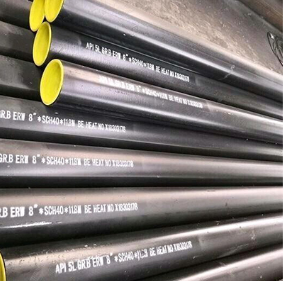Top 8 Industrial Benefits of a Casing Pipe
Casing pipes play a crucial role in various industries, particularly in oil and gas exploration and production. Here are the top eight benefits of a casing pipe for the industry.
Well Integrity
Casing pipes provide structural integrity to oil and gas wells, ensuring that the wellbore remains stable and prevents any collapse or formation damage. They create a protective barrier between the wellbore and surrounding formations, maintaining the integrity of the well.
Formation Control
Casing pipes help control the flow of fluids and gases within the well. They prevent the migration of fluids between different formations, reducing the risk of cross-contamination and maintaining the stability of the reservoir.
Pressure Containment
Casing pipes are designed to withstand high pressure from the reservoir fluids. They act as a containment barrier, preventing any blowouts or uncontrolled releases of fluids from the well. This assures that the security of personnel and the environment.
Corrosion Resistance
The seamless pipe is often made from corrosion-resistant materials, such as carbon steel with protective coatings or corrosion-resistant alloys. This helps to extend the lifespan of the pipes and maintain their structural integrity in corrosive environments.
Cementation
Casing pipes are used during the cementing process to create a seal between the wellbore and the surrounding formations. Cement is pumped into the annular space between the casing and the wellbore, providing zonal isolation and preventing fluid migration.
Well Stimulation and Production Optimization
Casing pipes are essential for well-stimulation techniques such as hydraulic fracturing. They allow the injection of fluids and proppants into the well, creating fractures in the reservoir rock and enhancing production rates.
Directional Drilling Support
Casing pipes provide stability and support during directional drilling operations. They help maintain the desired well trajectory and prevent deviation or collapse of the wellbore in challenging drilling conditions.
Well Monitoring and Intervention
Casing pipes often incorporate accessories such as casing hangers, packers, and valves, which enable well monitoring, intervention, and control. These components facilitate operations such as well logging, wellhead maintenance, and production control.
Conclusion
Overall, casing pipes are critical components in the oil and gas industry, providing well integrity, pressure containment, and formation control.
They contribute to safe and efficient drilling, completion, and production operations, ensuring the long-term viability of oil and gas wells.
The above information can be beneficial for the dealing with a casing pipe manufacturer and find a perfect casing pipe for your industrial purposes and achieves a worthy product along with maintaining value of your money in all aspects.



Comments
Post a Comment